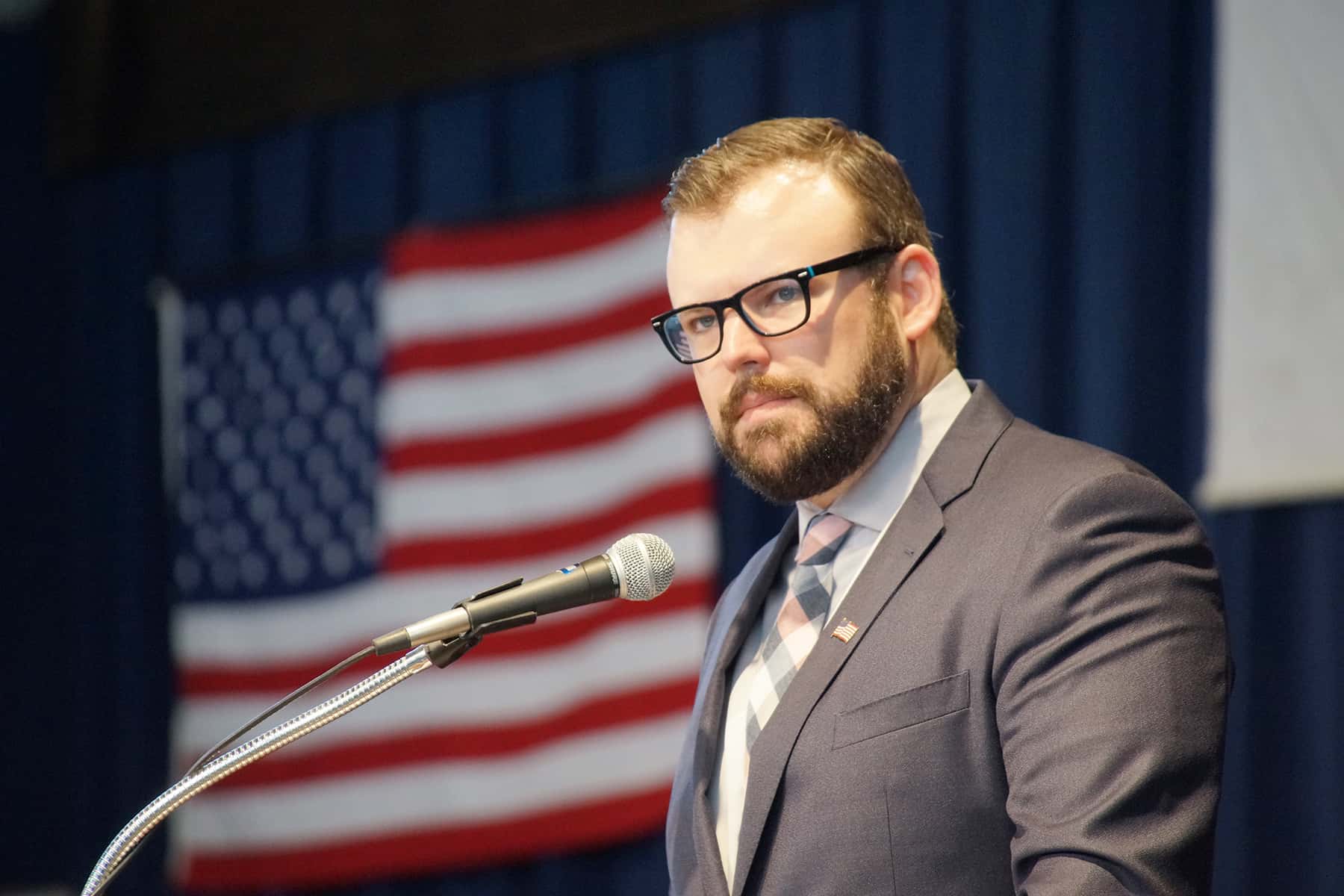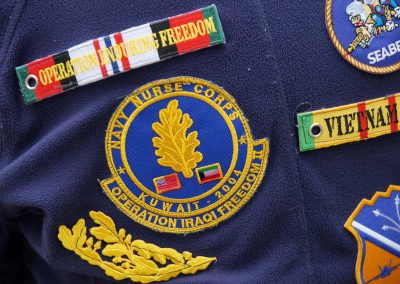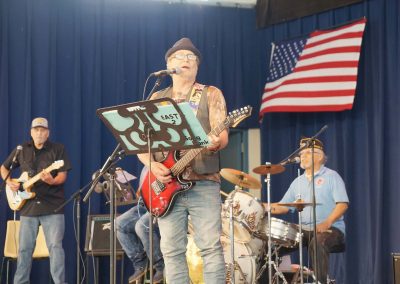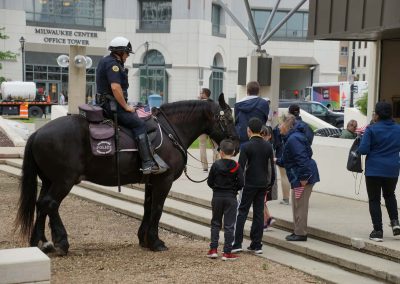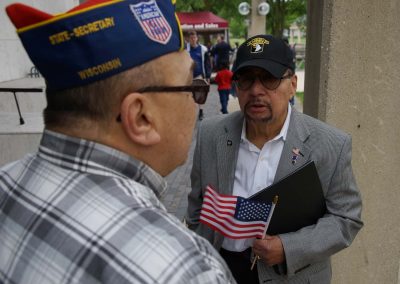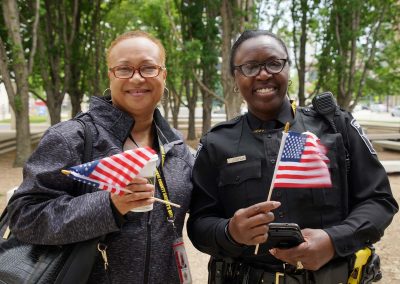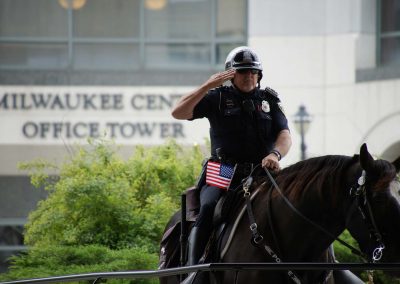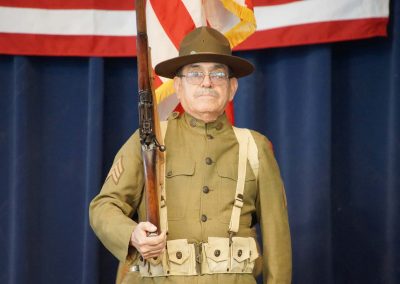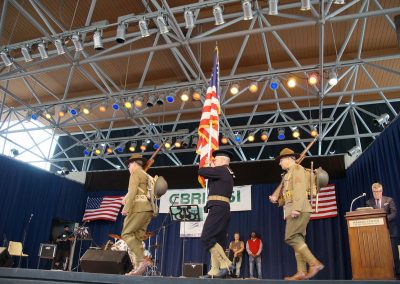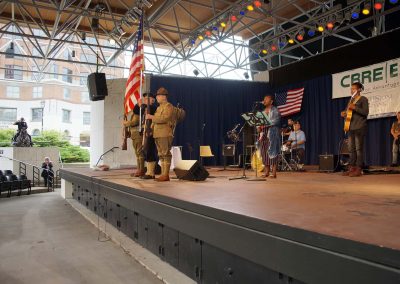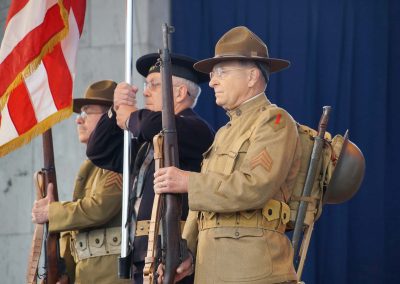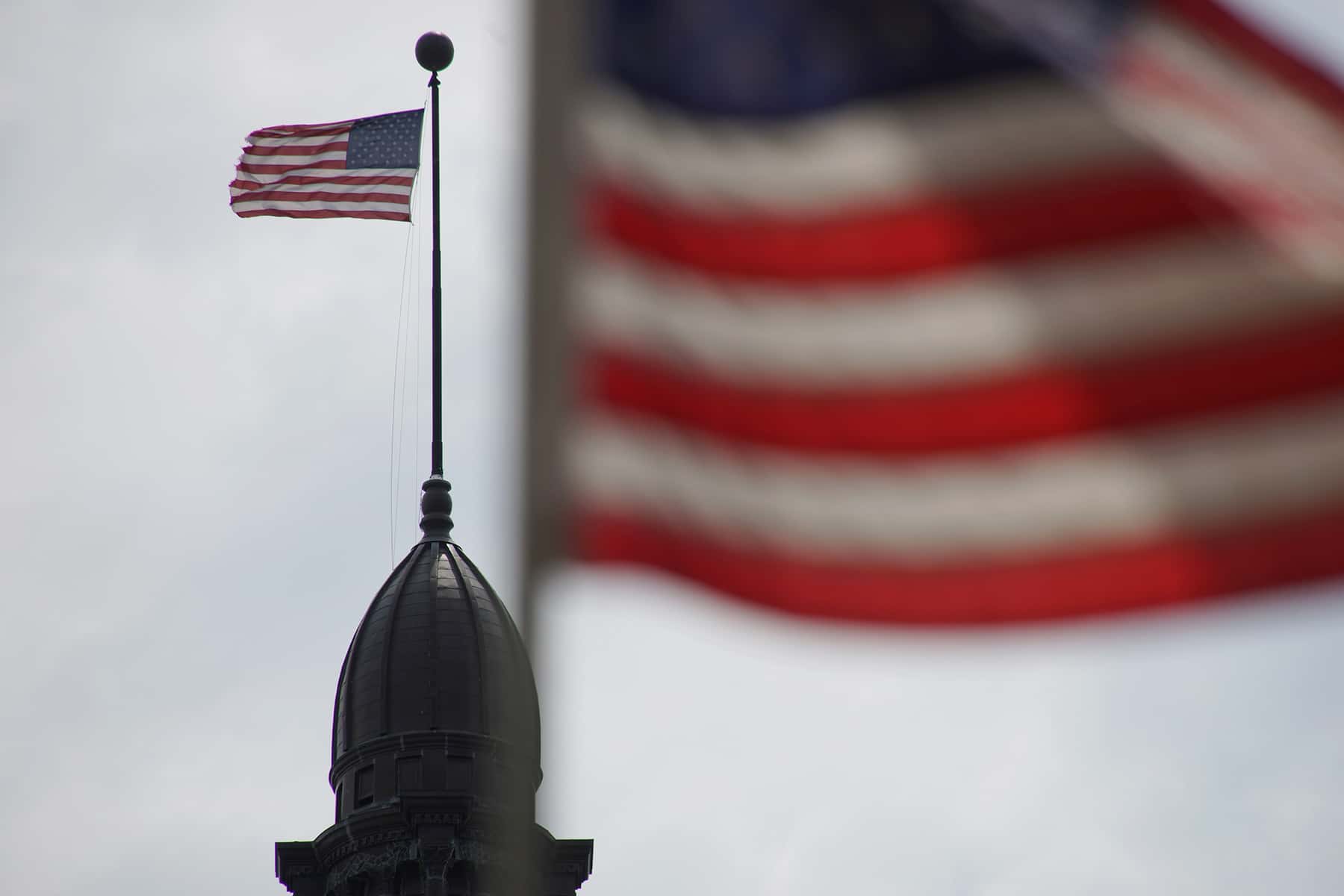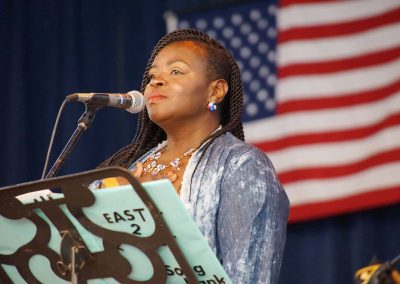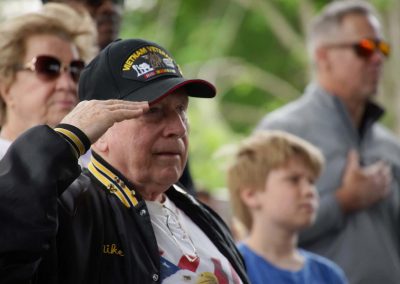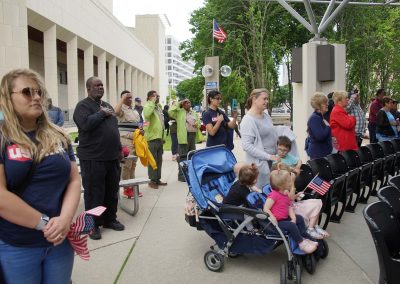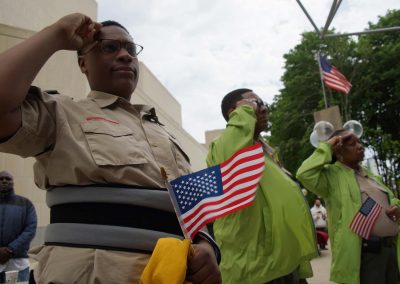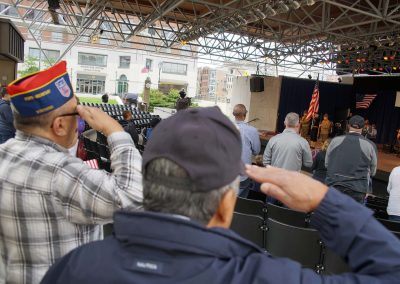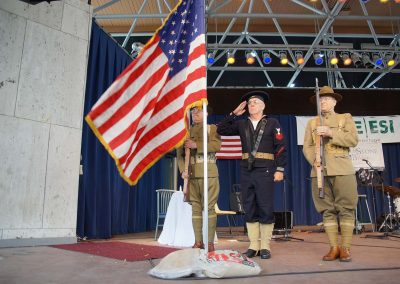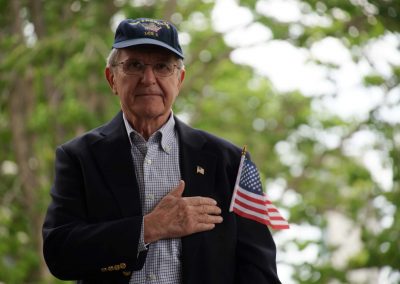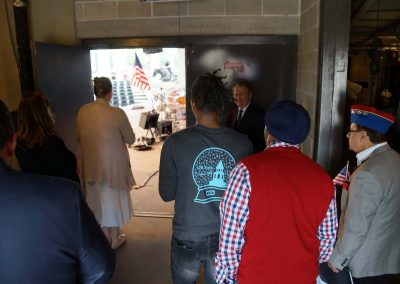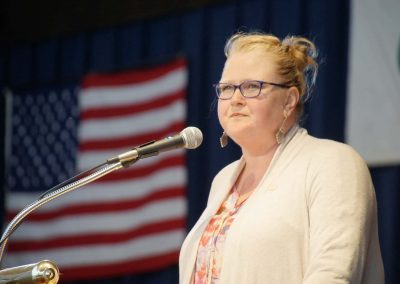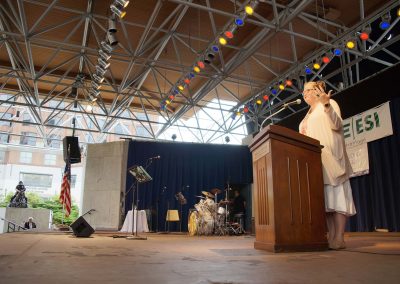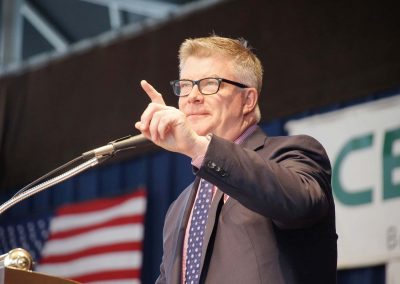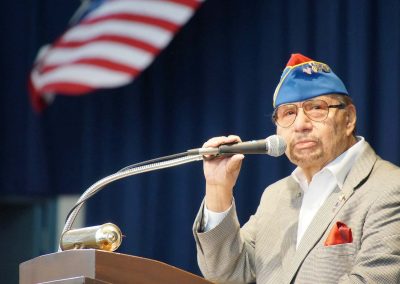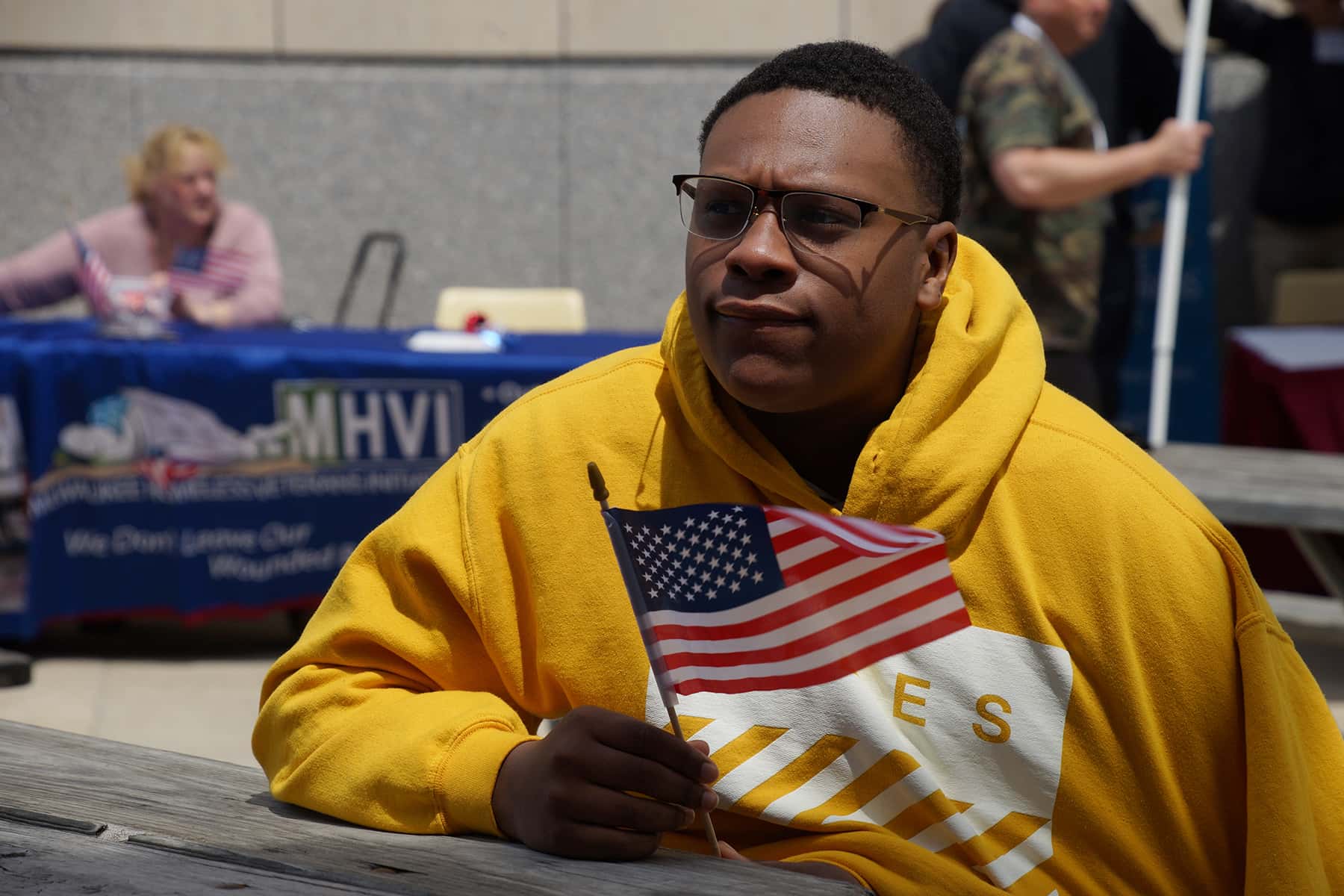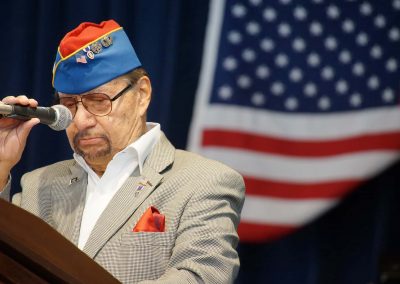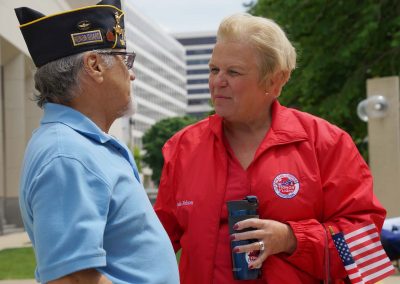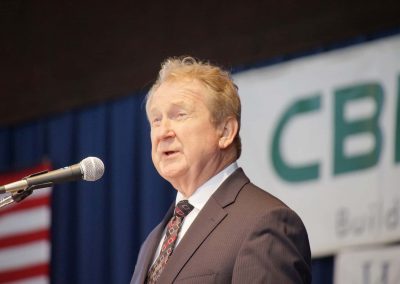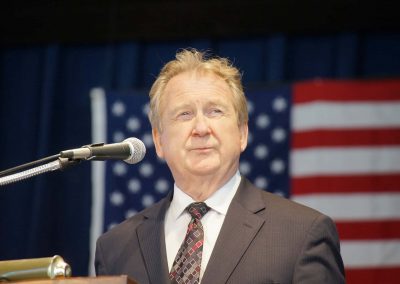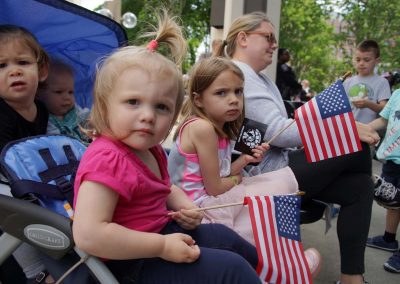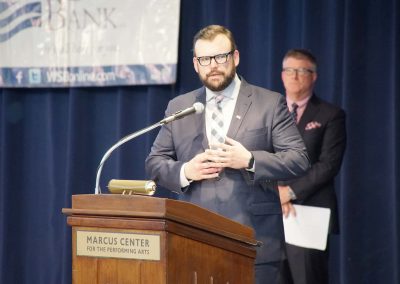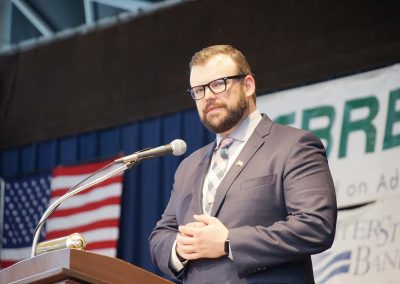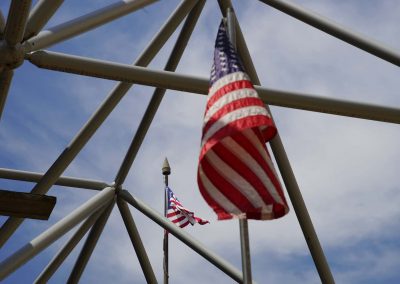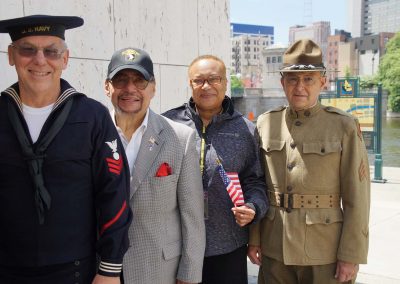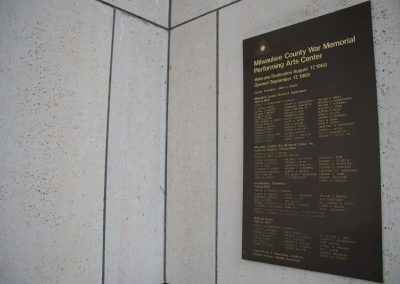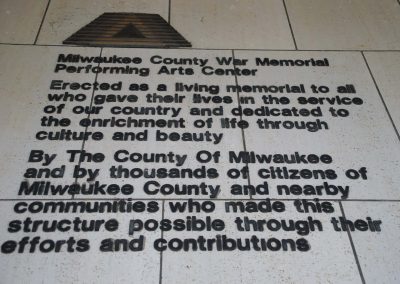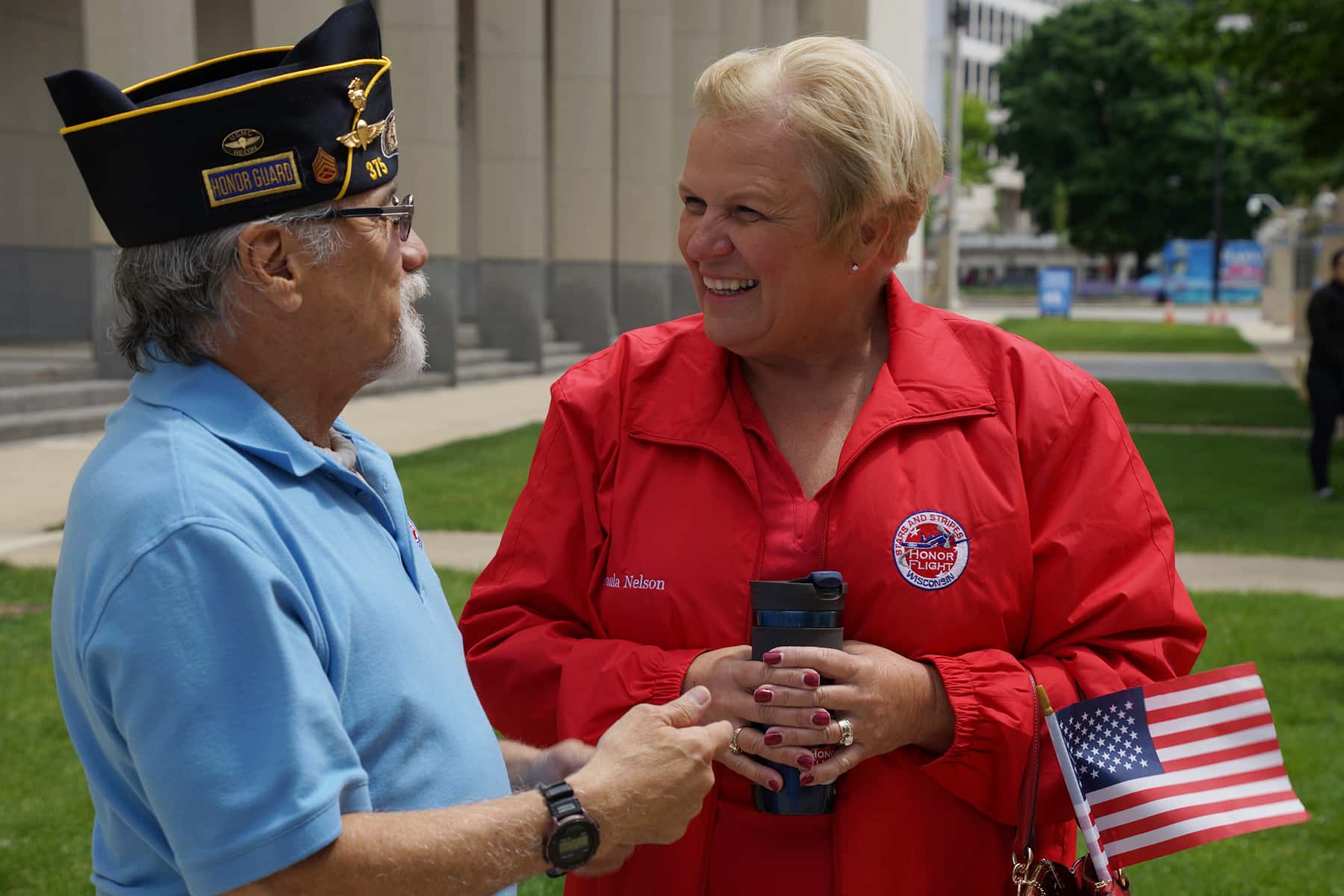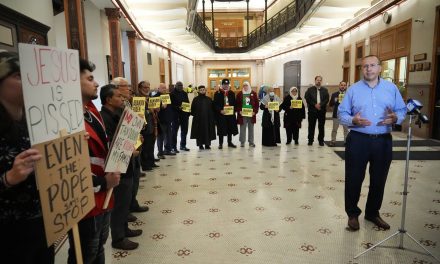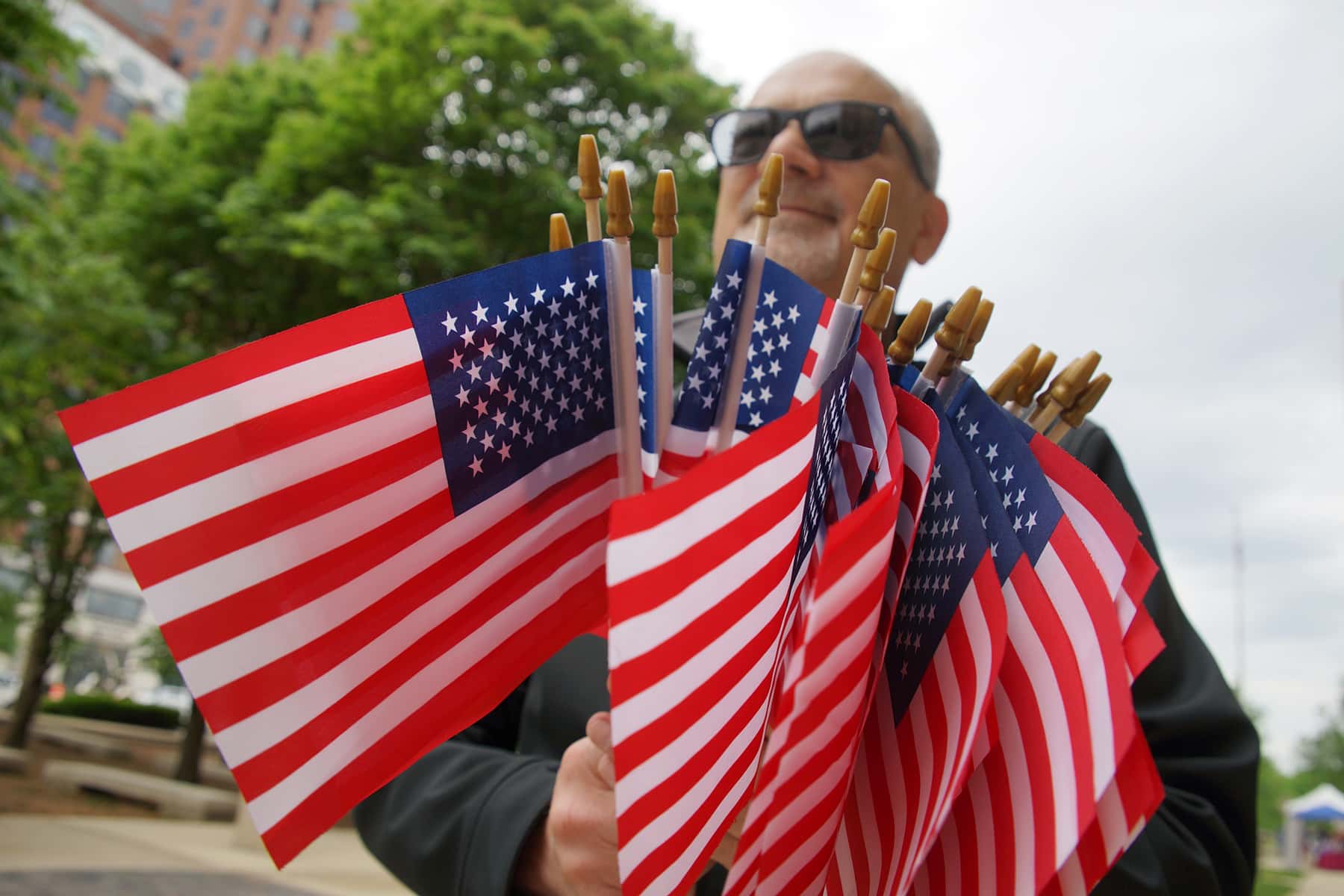
The Marcus Center for the Performing Arts hosted the 10th annual Flag Day celebration for residents of Milwaukee on June 14, with a mix of educational materials from a community resource fair for veterans and patriotic festivities to honor the nation’s red, white, and blue symbol.
New for the 2019 event was a resource fair along the RiverWalk, that included informational stations hosted by WaterStone Bank, Wisconsin Veterans Chamber of Commerce, and other community nonprofits that serve local military heroes and their families. Keynote speaker for this year was Saul Newton, the executive director for the Wisconsin Veterans Chamber of Commerce.
“For the first time in American history, from the highest ranking general to the lowest ranking private, every member of the military volunteered to be there,” said Newton. “Over the course of our almost 250 year history, that has never been the case before. What an all volunteer force means is, the population of those who are serving in the military and can share those experiences is smaller than it has ever been before. Today, less than 1% of the population volunteers to serve in the military.”
Sandwiched between Memorial Day and Veterans Day, Flag Day traces its roots to June 14, 1777, when a resolution was adopted by the Continental Congress suggesting a design for the new nation’s flag. It was first carried into battle on September 11, 1777, in the Battle of the Brandywine. The American flag was first saluted by foreign naval vessels on February 14, 1778. Under the command of Captain Paul Jones, The Ranger flew the Stars and Stripes when arrived in a French port.
By the late 1800s, schools all over the United States held Flag Day programs to contribute to the Americanization of immigrant children. The most recognized claim for the origin of Flag Day came from New York, on June 14, 1889. A free kindergarten for the city’s poor held patriotic ceremonies to observe the anniversary of the Flag Day resolution, and the initiative went on to attract national attention.
Bernard J. Cigrand, a school teacher in Waubeka, Wisconsin, reportedly spent years trying to get Congress to declare June 14 as a national holiday. Both President Wilson in 1916, and President Coolidge in 1927, issued proclamations asking for June 14 to be observed as the National Flag Day. But it was not until August 3, 1949, that Congress approved the national observance, and President Harry Truman signed it into law.
When it opened in 1969, The Performing Arts Center, now known as the Marcus Center for the Performing Arts, was dedicated as the third entity of the Milwaukee County War Memorial Center.
After an invocation by Pastor Alexis Twito from the Salvation Army, those in attendance joined a solemn moment with the POW/MIA Remembrance Ceremony. George F. Banda, who served with the legendary 101st Airborne Division’s Screaming Eagles in Vietnam as a Combat Medic from 1969 to 1970, led the audience in a moment of silence, and an expression of gratitude for all those who have served the nation. Each year a cash donation is given to a veteran’s organization, and for 2019 it was presented to the Lance P. Sijan Foundation.
In his keynote address, Newton talked about the all volunteer military’s lack of connections with the larger community, and the loss of the stories, experiences, and that value to Milwaukee.
“The natural byproduct of that is, as the population gets smaller so does the visibility of veterans and their profile in the community. Whereas in previous generations, everyone knew a veteran or served themselves, or had a family member who served,” added Newton. “Those generations knew what the word service meant. Today, it is no longer the case. Today, members of the military and their families have sort of become this isolated group.”
Part of the growing message with veteran’s groups has been about community connections, and helping a distracted public understand that veterans are not only defined by their military service. As Newton explained, serving the nation was only one chapter in a person’s life. Individuals get numerous skills from the military, which are then taken with them after discharge and have a broader impact for the rest of their life. As the military chapter of their story ends, their lives go on, starting businesses or being outstanding employees, and weaving into the fabric of Milwaukee’s neighborhoods.
© Photo
Lee Matz

